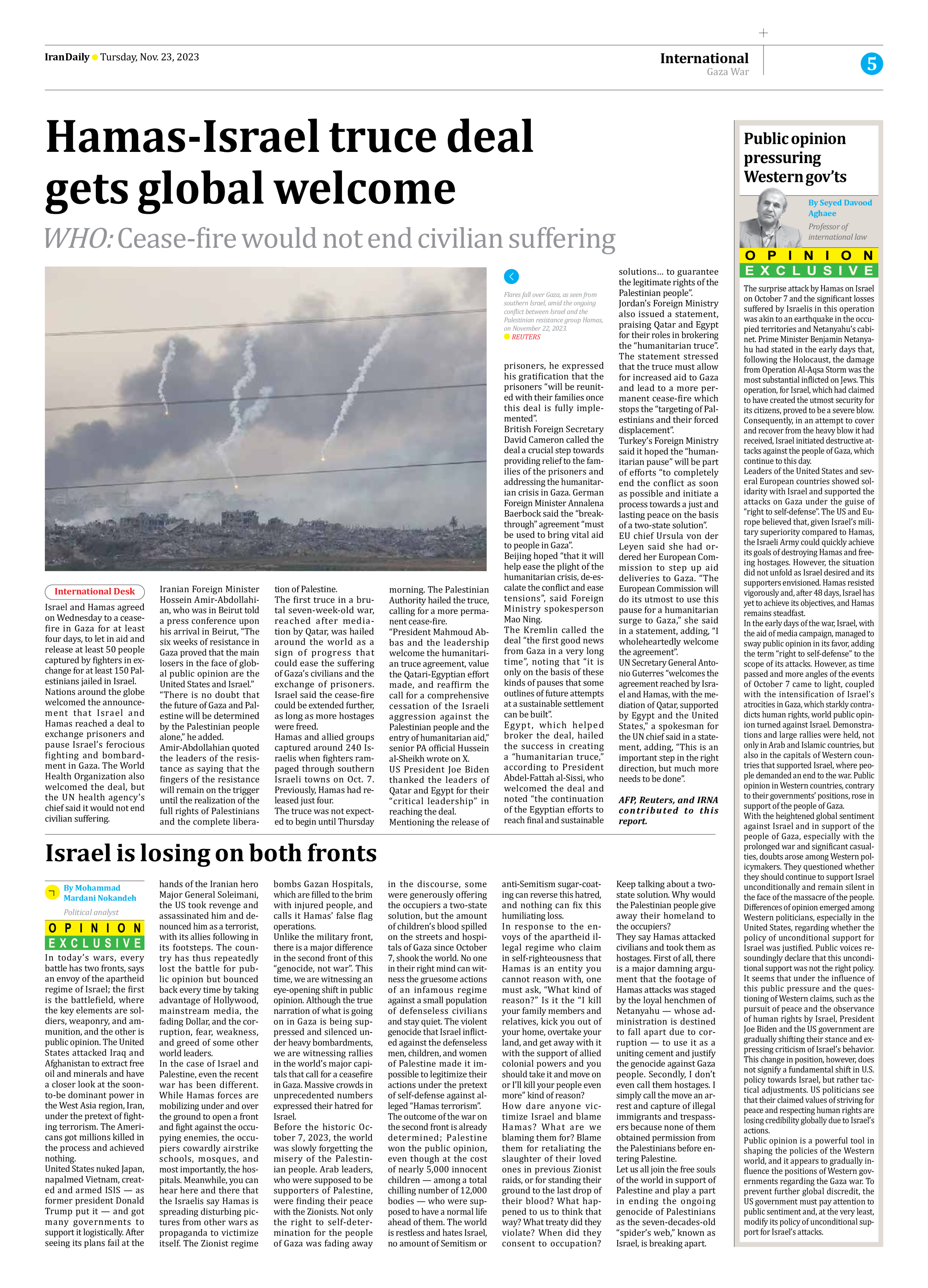
Public opinion pressuring Western gov’ts
By Seyed Davood Aghaee
Professor of international law
The surprise attack by Hamas on Israel on October 7 and the significant losses suffered by Israelis in this operation was akin to an earthquake in the occupied territories and Netanyahu’s cabinet. Prime Minister Benjamin Netanyahu had stated in the early days that, following the Holocaust, the damage from Operation Al-Aqsa Storm was the most substantial inflicted on Jews. This operation, for Israel, which had claimed to have created the utmost security for its citizens, proved to be a severe blow. Consequently, in an attempt to cover and recover from the heavy blow it had received, Israel initiated destructive attacks against the people of Gaza, which continue to this day.
Leaders of the United States and several European countries showed solidarity with Israel and supported the attacks on Gaza under the guise of “right to self-defense”. The US and Europe believed that, given Israel’s military superiority compared to Hamas, the Israeli Army could quickly achieve its goals of destroying Hamas and freeing hostages. However, the situation did not unfold as Israel desired and its supporters envisioned. Hamas resisted vigorously and, after 48 days, Israel has yet to achieve its objectives, and Hamas remains steadfast.
In the early days of the war, Israel, with the aid of media campaign, managed to sway public opinion in its favor, adding the term “right to self-defense” to the scope of its attacks. However, as time passed and more angles of the events of October 7 came to light, coupled with the intensification of Israel’s atrocities in Gaza, which starkly contradicts human rights, world public opinion turned against Israel. Demonstrations and large rallies were held, not only in Arab and Islamic countries, but also in the capitals of Western countries that supported Israel, where people demanded an end to the war. Public opinion in Western countries, contrary to their governments’ positions, rose in support of the people of Gaza.
With the heightened global sentiment against Israel and in support of the people of Gaza, especially with the prolonged war and significant casualties, doubts arose among Western policymakers. They questioned whether they should continue to support Israel unconditionally and remain silent in the face of the massacre of the people. Differences of opinion emerged among Western politicians, especially in the United States, regarding whether the policy of unconditional support for Israel was justified. Public voices resoundingly declare that this unconditional support was not the right policy. It seems that under the influence of this public pressure and the questioning of Western claims, such as the pursuit of peace and the observance of human rights by Israel, President Joe Biden and the US government are gradually shifting their stance and expressing criticism of Israel’s behavior. This change in position, however, does not signify a fundamental shift in U.S. policy towards Israel, but rather tactical adjustments. US politicians see that their claimed values of striving for peace and respecting human rights are losing credibility globally due to Israel’s actions.
Public opinion is a powerful tool in shaping the policies of the Western world, and it appears to gradually influence the positions of Western governments regarding the Gaza war. To prevent further global discredit, the US government must pay attention to public sentiment and, at the very least, modify its policy of unconditional support for Israel’s attacks.







